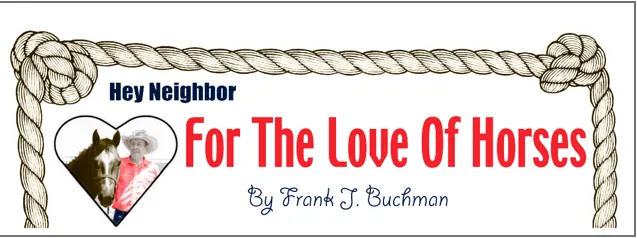Welfare of horses to provide continued opportunities for more people highlighted annual meeting of the American Horse Council.
Executive director of the Kansas Horse Council at Manhattan, Justine Staten represented the state at that session in Washington, D.C.
Rehoming unwanted horses’ discussions emphasized importance of developing standardized programs through adequate funding especially with grant assistance.
“There is a consistent mission of organizations working in this effort,” Staten pointed out. “Still philosophies vary about certain second-career avenues as well as end-of-life options.”
New evaluation tools to measure happiness of horses were reviewed by Dr. Kris Hiney from Oklahoma State University.
“The aim is to better understand horses through their body language responses to various situations and handler expectations,” Staten said. “As an industry, we must start viewing horses from a ‘broader scope,’ or possibly lose our ‘social license’ to operate.”
Volunteers are needed for success of most horse activities, but they must be “managed” to be more helpful.
“While people are generally anxious to assist, often they don’t know what is expected of them,” Staten pointed out. “A video could help explain where volunteers are needed and what would be involved along with an easy sign-up process.”
Shared duties among state horse council executives and directors could be lightened through outsourced services. “That would be especially beneficial for certain accounting and social medial marketing,” Staten noted.
Youth are the future for horse ownership and activities. “Studies show that children need to be introduced to horses by the time they’re 10-years-old,” Staten said. “Or they turn to ‘easier’ access recreation which will be the direction they choose for long term.”
Presently, there are insufficient entry points for first time experiences with horses. “This could possibility be increased through youth horse club activities and school curriculums including horses,” Staten said.
With horses selling at record prices, there is an “uptick” in breeding to catch up with high demand for “broke” horses.
“There are fewer lesson horses and first-timer horses creating the strong horse market,” Staten said. “Indicators are for falling prices in a couple of years when the inventory increases.”
However, with high breeding prices there should be more responsible breeding. Still grade horse breeding is not recorded, so potential for flooding the horse inventory still exists.
Economic impact of horses is often not completely understood. “Research and data mining can clarify trends to help tell the story to those outside the industry,” Staten said.
The World Organization for Animal Health (WOAH) has suggested that horses should be included in recommendations for rabies vaccinations.
Instead of listing horses with dogs, cats and ferrets which are pets/companion animals, for rabies vaccination, Staten proposed further clarification. “Maybe there should be addition of ‘as well as livestock, such as equine’ to keep horses recognized as livestock,” Staten recommended.
During discussion about recreational trails developed for horses, there was concern about increased travel of ‘e-bikes’ on non-motorized trails. “Non-equestrian users of horse trails and park camping areas substantially increased during coronavirus with more outdoor recreation,” Staten said.
Amateur status in horse show competition is being evaluated by associations. “Giving entry level lessons with horses could bump someone out of amateur showing status,” Staten said. “That creates shortages of those introducing horses to youth or for bringing older people into the industry as first-time experiences.”
Professional trainers oppose changes seeing it as “competition” to their business. “That should not be the result because it broadens training opportunities after someone else gets these people started,” Staten said.
New national standards for racetrack safety are being implemented. “While the rules are initially for Thoroughbreds, most likely other breeds will be ‘forced’ to follow suit,” Staten said.
Rules include standards for jockey safety, use of a crop, racetrack accreditation and training, and open veterinary records. “It involves a second separate set of officials during the race, increasing expenses, and requires fee assessments for authorization,” Staten said.
Opponents are concerned over the costs forced on breeders and racing groups making it harder to “pay up” to participate.
“The Jockey Club is in full support to weed out ‘bad apples,’ and help with ‘social license’ concerns,” Staten concluded.





